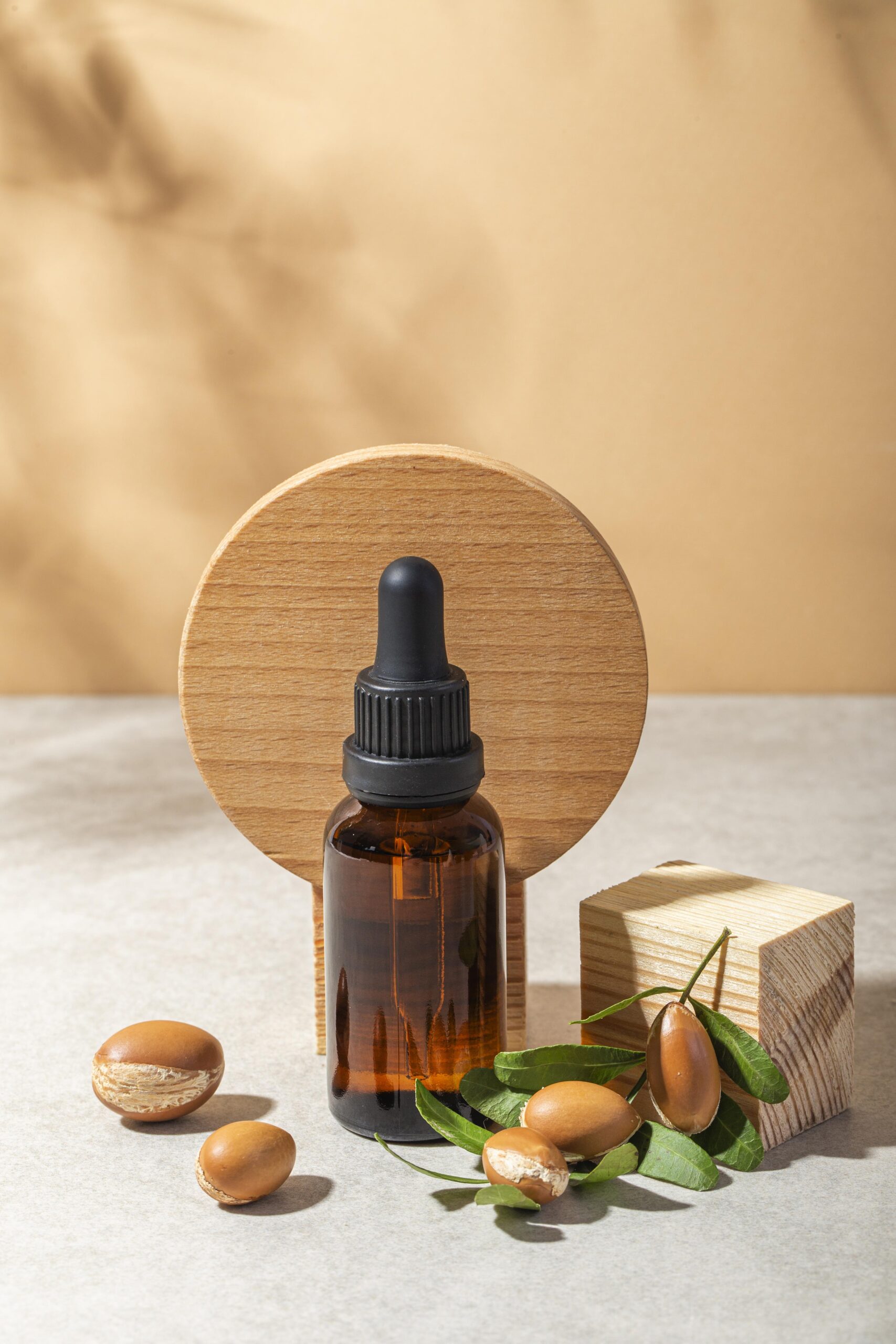Argan oil has long been known as a symbol of natural beauty and tradition. Extracted from the Argania spinosa tree, this precious oil has nourished skin, hair, and diets for generations. But today, a new challenge is threatening the future of this golden treasure: climate change.
In this article, we’ll explore how environmental shifts are impacting the argan oil industry, what it means for producers and businesses, and why sustainable practices are more important than ever.
What Makes Argan Oil So Special?
Argan oil is produced only in southwestern Morocco, where argan trees grow naturally. It is cold-pressed from the kernels of the tree’s fruit and is highly valued for its versatility.
Main Characteristics
- Cold-pressed and unrefined
- Rich in vitamin E, omega-6, and antioxidants
- Used in cosmetics, skincare, haircare, and food
- Light, fast-absorbing, and deeply hydrating
- Certified organic options available (ECOCERT, USDA)
📖 Discover more on argan oil’s composition from NCBI
How Climate Change Is Impacting Argan Trees
Argan trees are known for their resilience. However, recent climate shifts are putting even these tough desert trees at risk.
Key Effects of Climate Change
- Longer droughts reduce tree growth and fruit yield
- Higher temperatures affect flowering and seed development
- Soil erosion from wind and rain impacts root systems
- Irregular rainfall interrupts harvest cycles
As a result, the overall production volume of argan oil is declining, especially in traditionally fertile zones.
Consequences for the Argan Oil Industry
Climate change doesn’t just affect the trees—it disrupts the entire value chain, from harvesters to retailers.
Economic Impact
- Farmers experience lower harvest income
- Prices may rise due to limited supply
- Small cooperatives may struggle to stay afloat
Product Quality
- Lower water availability can reduce nutrient content
- Unripe fruit leads to less oil per batch
- Changing climate may alter taste and scent profiles
While many suppliers still offer high-quality oil, the pressure is growing. It’s crucial to support producers using sustainable practices.
How Argan Oil Differs from Other Natural Oils
Argan oil is unique not only because of its origin but also due to its limited production zone, making it more sensitive to environmental stress than oils like coconut or almond oil.
| Oil Type | Production Zone | Climate Sensitivity | Availability |
|---|---|---|---|
| Argan Oil | Morocco only | High | Limited |
| Coconut Oil | Asia, tropics | Moderate | Widely available |
| Olive Oil | Mediterranean | Moderate | High |
| Almond Oil | Global farms | Low | High |
Because argan oil is sourced from a biodiversity hotspot, protecting it is also a matter of environmental conservation.
The Price of Sustainability
With rising production challenges, prices are expected to slowly increase. However, this rise reflects the true cost of ethical and sustainable farming.
Price Overview
- 100ml cosmetic argan oil: $20–$30
- 1 liter bulk oil: $40–$55
- Food-grade oil: $45–$60
- Deodorized oil: Slightly higher
- Available at: https://argan-oil.ma/wholesale
Investing in quality also means supporting the producers who work harder to maintain traditional methods.
Consumer Feedback
“I’m happy to pay more knowing the oil supports sustainable farming and local communities.” – Lina, Germany
“The quality remains incredible, and it feels good to know where it comes from.” – Thomas, Canada
“I started buying directly from cooperatives to help them stay strong in these changing times.” – Sara, USA
Blogger’s Opinion
As a clean beauty and eco-lifestyle blogger, I’ve used countless oils over the years. But argan oil has always had a special place in my skincare routine and my heart. It’s more than a product—it’s part of a culture, a land, and a way of life.
Hearing how climate change is threatening the very trees that give us this oil deeply moved me. I now make sure to buy only from certified, fair trade, and eco-conscious producers like argan-oil.ma. Supporting their work helps keep this tradition alive—and that matters to me.
What Can We Do?
If you’re a brand, buyer, or simply a fan of argan oil, you can help by:
- Choosing sustainable and fair trade argan oil
- Educating your customers about its origins
- Supporting women’s cooperatives and eco-certified suppliers
- Buying in bulk to reduce packaging waste
These simple steps support both people and the planet.
Conclusion
The argan oil industry stands at a crossroads. Climate change is real, and its impact is already being felt. Yet, with awareness, ethical sourcing, and global support, we can protect this precious resource for future generations.
👉 To learn more or source premium sustainable argan oil, visit: https://argan-oil.ma



